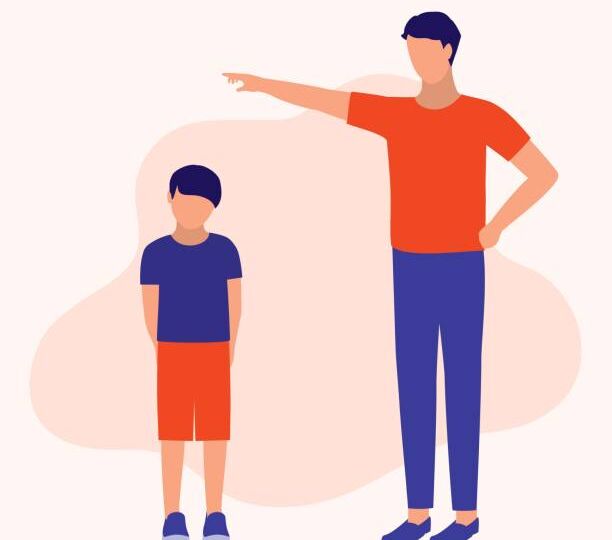
Parental authority is the bedrock of a child’s upbringing, shaping their values, behavior, and future. Under the Family Code, parental authority is the term used to describe the rights and responsibilities that parents hold concerning their children.
What is the scope of parental authority?
Pursuant to the natural right and duty of parents over the person and property of their unemancipated children, parental authority and responsibility shall include:
- The caring for and rearing them for civic consciousness and efficiency; and
- The development of their moral, mental and physical character and well- being.
Who exercises parental authority?
The father and mother shall jointly exercise parental authority over the persons of their common children, in case of disagreement, the father’s decision shall prevail unless there is a judicial order to the contrary.
Note: For Article 211 to apply to illegitimate children, two requisites must concur, namely:
- The father is certain; and
- The illegitimate children are living with the said father and mother who are cohabiting without the benefit of marriage or under a void marriage not falling under Articles 36 and 53
In what cases may a parent waive parental authority over his or her children?
The law allows a waiver of parental authority only in cases of adoption, guardianship, and surrender to a children’s home or an orphan institution.
What is the order of substitute parental authority?
In default of parents or a judicially appointed guardian, the following person shall exercise substitute parental authority over the child in the order indicated:
- The surviving grandparent;
- The oldest brother or sister, over 21 years of age, unless unfit or disqualified; and
- The child’s actual custodian, over 21 of age, unless unfit or disqualified
When shall special parental authority be exercised?
Special parental authority shall be exercised as follows:
- In case of foundlings, abandoned, neglected or abused children and other children similarly situated, parental authority shall be entrusted in summary judicial proceedings to heads of children’s homes, orphanages and similar institutions duly accredited by the proper government agency (FAMILY CODE, Art. 217); or
- The school, its administrators and teachers, or the individual, entity or institution engaged in child care shall have special parental authority and responsibility over the minor child while under their supervision, instruction or custody. Authority and responsibility shall apply to all authorized activities whether inside or outside the premises of the school, entity, or institution.
What is the liability of persons exercising special parental authority?
The law provides that persons exercising special parental authority under Article 218 of the Family Code shall be principally and solidarily liable for damages caused by the acts or omissions of the unemancipated minor. The parents, judicial guardians or the persons exercising substitute parental authority over said minor shall be subsidiarily liable. They are not liable if it is proved that they exercised the proper diligence required under the particular circumstances.
What are the grounds for suspension of parental authority?
The grounds are the following:
- Conviction of a crime with the penalty of civil interdiction (FAMILY CODE. Art. 230);
Note: The authority is automatically reinstated upon service of the penalty or upon pardon or amnesty of the offender;
- Excessively harsh or cruel treatment against the child;
- Giving the child corrupting Orders;
- Child is compelled to Beg
- Subjecting the child or allowing him to be subjected to Acts of lasciviousness; and
- Culpable Negligence, committed by the parent or person exercising authority.
What are the grounds for termination of parental authority?
The termination of parental authority may be permanent or temporary.
Parental authority terminates permanently:
- Upon the death of the Parents;
- Upon the death of the Child
- Upon Emancipation of the child (FAMILY CODE, Art. 228); or
Note: A child is emancipated upon reaching the age of majority which is 18.
- The person exercising parental authority has subjected the child or allowed him to be subjected to Sexual abuse
Unless subsequently revived by a final judgment, parental authority also terminates: (AGADI)
- Upon Adoption of the child;
- Upon appointment of a General guardian;
- Upon judicial declaration of Abandonment of the child in a case filed for the purpose;
- Upon final judgment of a competent court Divesting the party concerned of parental authority; or
- Upon judicial declaration of absence or Incapacity of the person exercising parental authority.
Note: Under the Child Abuse Law, the ascendant, step-parent or guardian who shall induce, deliver or offer a minor to any one prohibited by the said law to keep or have in his company a minor in any public or private place, hotel, motel, beer joint, discotheque, cabaret, pension house, sauna or massage parlor, beach and/or other tourist resort or similar places shall lose parental authority over the minor.
Source:
The Family Code
R.A. No. 7610, as amended, also known as Child Abuse Law


